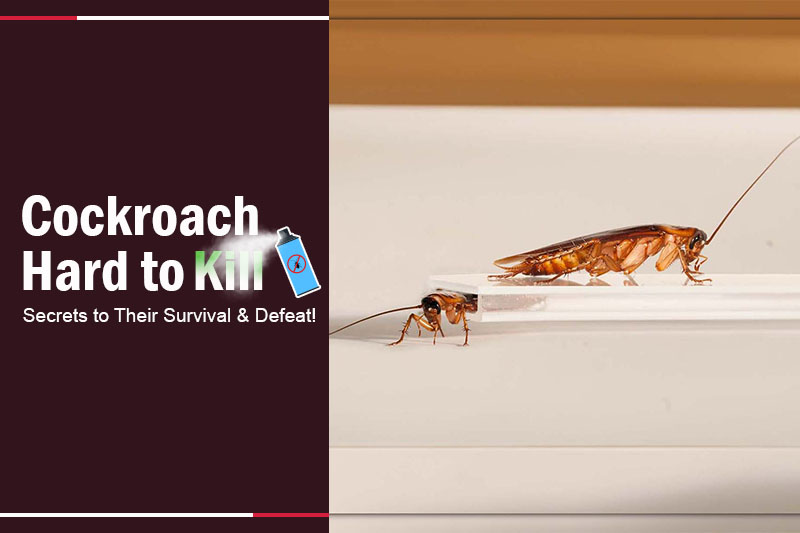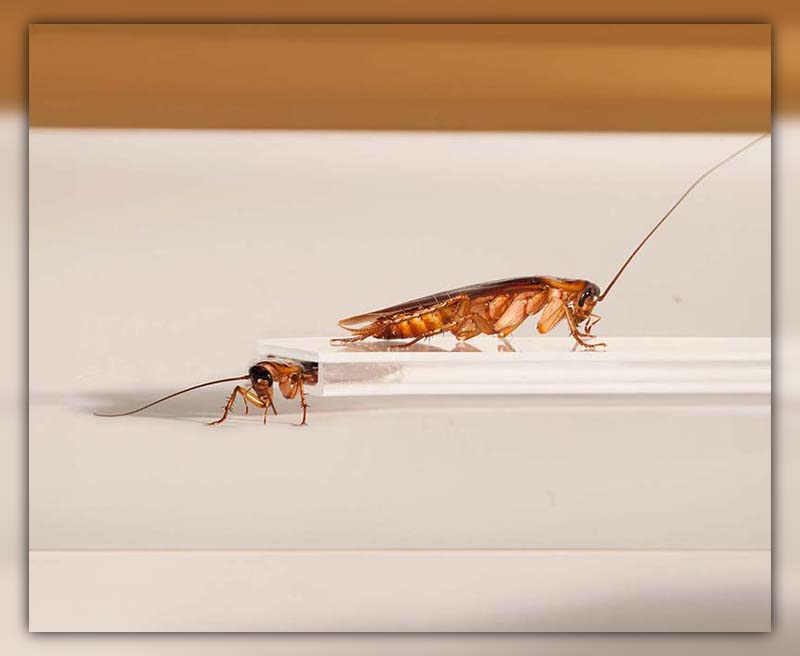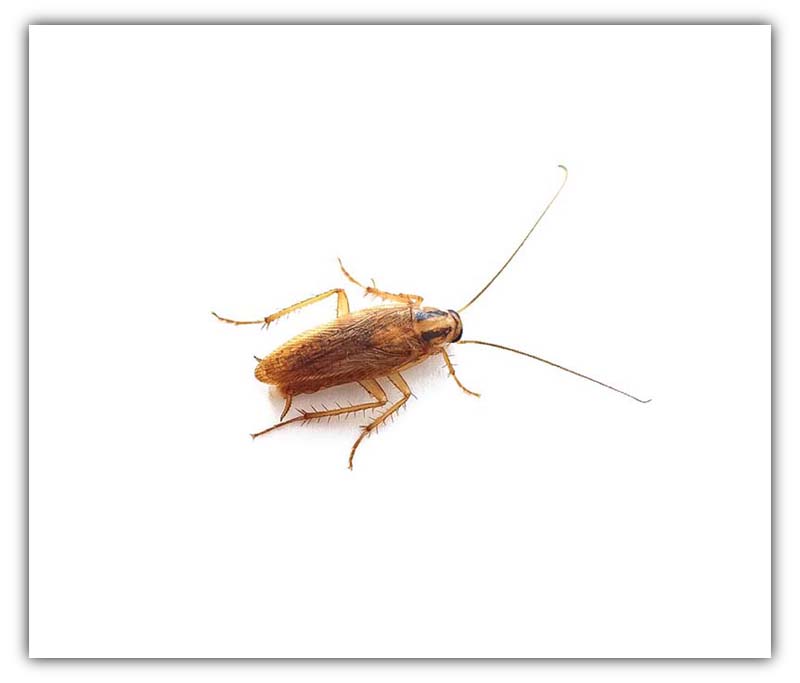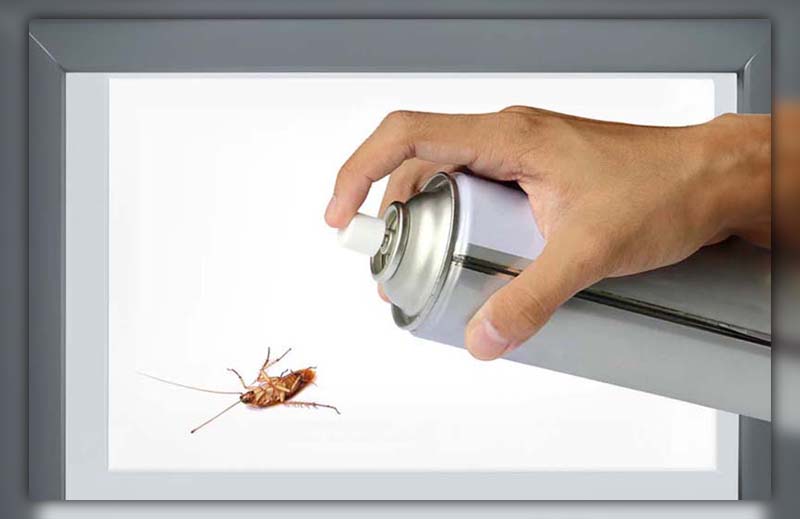Why is the cockroach hard to kill? Many of us have grappled with this question as we find ourselves chasing down yet another resilient roach just when we thought we had them under control.
While the claim that cockroaches can survive a nuclear explosion is more of a myth, there’s undeniable evidence that these insects possess an impressive tenacity when it comes to survival.
But what exactly grants these eerie critters such robustness against threats, and how can one truly eliminate them?

7 reasons why are cockroach hard to kill
Ever wondered why cockroaches are such formidable survivors? Let’s explore the fascinating reasons behind their resilience:
The odds play a role in ensuring their survival
Cockroaches have truly hit the evolutionary jackpot.
Their genetics, reproductive strategies, and physical traits have all converged to ensure their survival, even when faced with measures that would decimate other insects.
Living Without Body Parts
Shockingly, a cockroach can survive an entire week without its head. This is because they breathe through small holes called spiracles on their body.
While they’ll ultimately perish from dehydration without their mouthparts, they can manage a month without food if they have access to water.
The younger ones, known as nymphs, can even regenerate lost body parts.
>> Read more: How long does a cockroach live: Exploring Cockroach Lifespan.
Speedy Travel Rates
Cockroaches are sprinters in the insect world.
They can dart at speeds of up to 3 mph. To put it in perspective, this is the equivalent of a human racing at 210 mph.
This lightning pace helps them dodge threats efficiently.
Atypical Reproduction
Interestingly, cockroaches don’t always need males to reproduce.
While they typically mate with males when available, in their absence, females can reproduce asexually through a process called parthenogenesis.
Enhanced Senses and Immune System
Certain cockroach species have heightened senses, particularly in smell and taste, aiding them in finding varied food sources.
They’re not fussy eaters and can consume everything from meats to inedible items.
Their unique genes detoxify harmful substances, allowing them to digest potentially hazardous foods.
>> Read more: Cockroach food poisoning symptoms: Risks & Prevention Tips.
Strong Exoskeletons
A cockroach’s exoskeleton is nothing short of remarkable.
It’s built from overlapping plates held together by flexible membranes, enabling them to withstand forces up to 900 times their body weight.
This makes squishing them a challenge!
>> Read more: Should you step on a cockroach? Myth vs. Fact!
Resistance to Insecticides
Like some bacteria resisting antibiotics, cockroaches can become resistant to insecticides.
Their quick reproductive cycles mean that subsequent generations may inherit and enhance this resistance.
What is the hardest cockroach to kill?
German cockroaches pose a significant challenge in pest control.
They reproduce quickly, often in hard-to-reach places, and are masters at hiding, infiltrating many areas of a home.
They aren’t picky eaters and will consume almost anything in their path.
Notably, they’re a health concern for humans.
They can spread harmful bacteria by contaminating food and surfaces with their saliva, feces, and shed skin. Their droppings and saliva can also cause allergies and even exacerbate asthma symptoms.
Typically, these cockroaches are nocturnal scavengers.
This means they’re most active at night, which can make them more noticeable if they’re in your home.
A female German cockroach lays between 4 to 6 egg cases in her lifetime, and their average lifespan ranges from 100 to 200 days.
How to Effectively Kill Cockroaches
Cockroaches are resilient pests, and while insecticides can tackle some, they don’t always halt extensive infestations.
To effectively manage these pests, it’s essential to have a comprehensive strategy. Here are practical steps to effectively eliminate cockroaches and prevent future invasions:
- Identify Problem Areas: Start by inspecting your home. Identifying where roaches congregate ensures you target the right places.
- Seal Entrances: Cockroaches exploit tiny entrances. Check for cracks, holes, and spaces that can be potential entry points. Sealing these denies access.
- Reduce Populations: Cockroaches breed quickly. To interrupt this cycle, employ roach baits and powders. These are particularly effective as they’re ingested and shared within the colony, reaching even the most hidden ones.
- Clean Infested Areas: Roaches love food scraps. Ensure your living spaces, particularly kitchens, are free of food residues. Clean areas with roach activity and store food in sealed containers.
- Trashcan Protection: Roaches are often drawn to trashcans. Products like TERRO Garbage Guard can deter them by releasing vapors that both kill and prevent roaches. Attach these to outdoor bins for enhanced protection.
- Use Glue Traps: These traps are a non-chemical approach to control. Roaches are attracted to the scent and then get stuck. Place these traps strategically to both reduce numbers and monitor activity.
- Regular Monitoring: After addressing an infestation, remain proactive. Keep glue traps set up and inspect areas of concern regularly. Early detection makes dealing with potential re-infestations easier.
Conclusion
In summary, understanding why the phrase “cockroach hard to kill” is more than just words but a reality lies in their evolutionary makeup.
From its remarkable exoskeleton to its resistance against insecticides and its rapid reproductive strategies, these insects are the epitome of survival.
For more insights into the intriguing world of pests, don’t forget to explore our other blogs on Pestweek.

Calina Mabel has over 15 years of experience in the field of journalism and communications. Currently, Calina Mabel is the Content Writer for categories such as Cockroach, Ants, Bed Bugs, Mosquito, Rodent, Termite, and Flies on Pestweek.com. She aims to build content for these categories with a focus on providing valuable and accessible information to readers, in order to create the world’s largest knowledge community about Pests.
All content written by Calina Mabel has been reviewed by Emily Carter.




